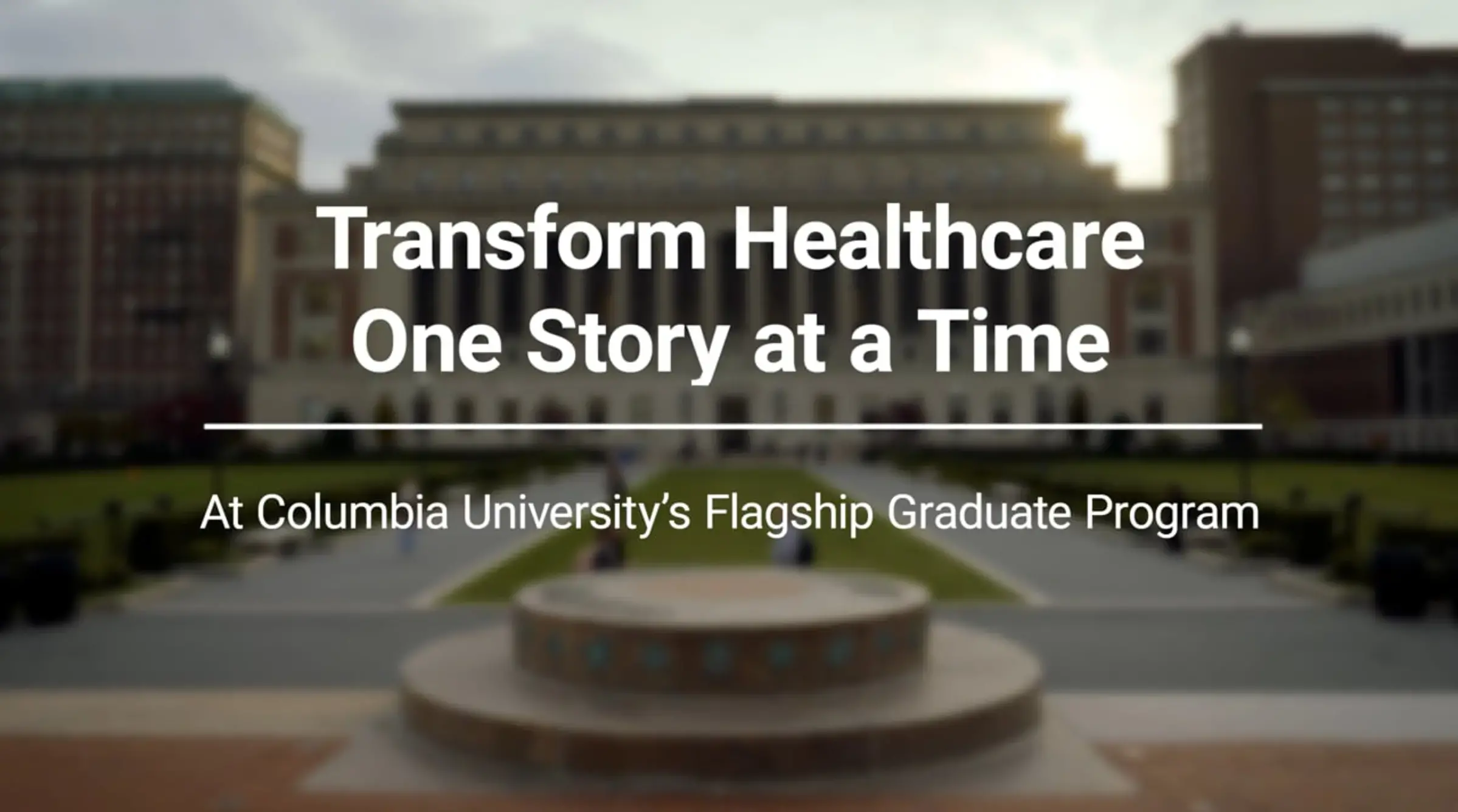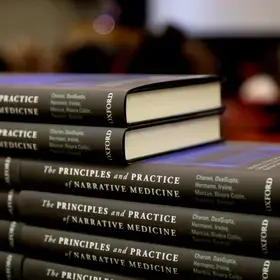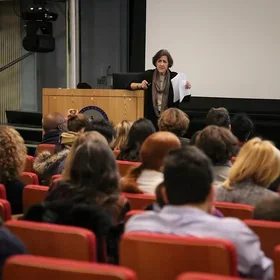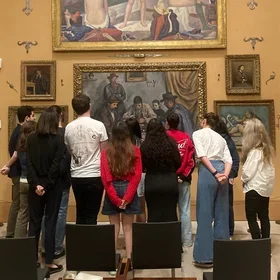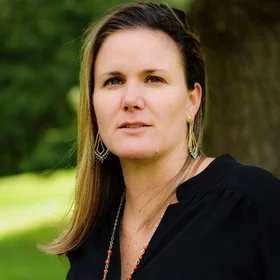Master of Science in Narrative Medicine
Master of Science Program: Overview
The Columbia University Master of Science in Narrative Medicine prepares health professionals, writers, and scholars to apply the skills and values of narrative understanding to improve outcomes for both patients and caregivers, and to investigate issues pertinent to health and healthcare in a rigorous transdisciplinary setting.
This flagship graduate program is the first of its kind. In the early 2000s, a group of scholars, clinicians, and writers joined to think systematically about the benefit of close reading in improving healthcare. The original group included internist and literary scholar Rita Charon; pediatrician, scholar, writer, and activist Sayantani DasGupta; literary and film scholar Maura Spiegel; philosopher Craig Irvine; novelist David Plante (replaced by novelist Nellie Hermann when Plante moved from New York); psychoanalyst Eric Marcus, and others. Intersubjectivity, social justice, embodiment, relationality, reflexivity, creativity, and doubt were the signal concepts of the group’s work, while close reading and creative writing became signature methods. Out of this collaboration arose a systematic and coherent set of principles and practices which form the basis for the M.S. in Narrative Medicine program.
Since then, the field has continued to evolve, welcoming scholars, creators, and practitioners who are dedicated to this work. In 2017, several faculty members co-authored The Principles and Practice of Narrative Medicine, published by Oxford University Press, which brings together the theoretical constructs of the field, as well as practical knowledge culled from over a decade of education, research, workshops, and collaborative thinking that has crystallized the goals and methods of narrative medicine. There are now many narrative medicine programs worldwide, and Columbia Narrative Medicine faculty and graduates work to encourage these efforts, sharing our methods and engaging in further productive collaboration.
Narrative Medicine M.S. students join this core faculty and guest instructors to learn the principles and practices of narrative medicine and to explore new areas of theory and application. Students typically take courses on Columbia’s New York City Morningside campus, and a small number of courses are offered with online synchronous instruction. The full-time program typically takes two terms to complete, plus the summer. The part-time program takes 2–6 years to complete and can be done while working full-time. Intake offered in fall.
At a Glance
In This Master’s Program, You Will…
- Build an interdisciplinary foundation in narrative understanding, the illness experience, and the tools of close reading and writing.
- Focus on applying narrative skills in fields like genetics, social justice advocacy, and palliative care.
- Learn how to bring your core values and sense of purpose to a healthcare career.
- Become a better writer and communicator.
- Learn how to use narrative skills to improve patient care and outcomes.
- Explore core social justice issues in healthcare and address systemic inequities.
- Gain a toolbox of new strategies to employ to improve healthcare.
- Address the need of patients and caregivers to be heard and valued
- Harness the power of narrative to change the ways we care for those most in need.
Program Features Include…
- A multidisciplinary curriculum in which students learn from collaborating closely with both faculty and peers.
- An acclaimed faculty including both clinicians and non-clinicians, along with experts and specialists in creative writing, philosophy, film, anthropology, and history.
- Personalized career guidance to help achieve your personal and professional goals.
- Direct access to the primary thought leaders and practitioners in the narrative medicine field.
- Access to Columbia’s narrative medicine community, an extensive alumni network and resources.
Who Should Apply?
- Healthcare professionals and trainees in clinical disciplines such as medicine, nursing, dentistry, social work, physical therapy, occupational therapy, psychoanalysis, and pastoral care.
- Scholar-practitioners of fields such as literature, writing and health journalism, oral history, medical anthropology, and other social sciences who want to understand illness and disability in their own fields or to help teach healthcare professionals.
- Individuals from disciplines such as narratology, creative writing, anthropology, gender studies, oral history, disability studies, etc.
- Those who wish to apply the tools of narrative competence to addressing issues of social justice in healthcare.
- Those who are drawn to this work for a variety of reasons. We welcome students from a wide range of backgrounds. Diversity and interdisciplinarity are core values and strengths of this program and the field.
- For those who combine the M.S. in Narrative Medicine with clinical degrees, this degree will position them to evolve into narratively competent clinicians. They will be able to pass on their understanding of the value of narrative to clinical competence, and, most importantly, will go into their own advanced training—internships, residencies, fellowships—equipped to be a different kind of caregiver.
As Alumni
Graduates will be positioned to lead narrative medicine programs in healthcare professions schools and clinical settings, developing, implementing, and evaluating the impact of these programs on clinical practice and quality of care. As program directors, division heads, department chairs, and senior administrators, they will be equipped with skills to generate narrative work, supervise practitioners, and uphold and promote standards for intellectual, clinical, and research work of narrative medicine.
Connect with Us
Learn more about Narrative Medicine at Columbia University School of Professional Studies, or contact the program admissions counselor.
Request more informationStudy with Us
As admissions to our programs are highly competitive, we encourage you to apply as soon as possible. Learn more about the application process, deadlines, and requirements.
Learn moreApply
We encourage you to apply as soon as possible.
Request Information
Stay in the know with updates sent straight to your inbox.
